Maximilian never thought he’d be an emperor.
The younger brother of Austria’s Franz Joseph lived in comfort and security. With no throne to inherit and no appetite for the brutal politics of court life, he built a world for himself on the Adriatic coast. There, in the majestic white-stone villa of Miramare Castle, he lived surrounded by pine trees, sea mist, books, art, and silence.
But one day, that silence was suddenly interrupted. Maximilian received a letter from representatives of war-torn Mexico, begging him to come and put an end to their woes. Only he, they claimed, could unite the country and put an end to the chaos — if he would allow them to crown him emperor.
Today, many historians frame Maximilian as rushing blindly to accept the delegation’s offer. But that couldn’t be further from the truth — for instead of celebrating the letter, Maximilian languished over it. The situation in Mexico was anything but secure, and to take up the crown would mean to leave peace and comfort behind and to step into the dangerous unknown. And yet, a sense of duty spurred him onwards.
Today, we explore how Maximilian I of Mexico wrestled with uncertainty, weighed the considerations of duty, and traded luxury for an uncertain fate — and, of course, what his story can teach you about heeding the call of destiny in your own life…
But first — this summer we are hosting our first ever INVICTUS retreat, The History of Rome as Told by Its Heroes.
Come explore the 5 Ages of Rome with us and learn not just about the Eternal City, but the men who made her great.
There’s only 1 spot remaining, so click below learn more about the retreat and apply today:
A Prince at Peace
For nearly 700 years, the lives of the Austrian Habsburgs had been defined by service to their people — and Maximilian’s was no exception. He served in the Austrian navy, held a governorship in Lombardy-Venetia, and quickly earned a reputation for his charm and intelligence.
But his liberal views put him at odds with his brother Franz Joseph, and it soon became clear that Maximilian would never play a central role in the affairs of the empire. Distancing himself from Vienna, he took up residence in Trieste’s Miramare Castle, and there pursued the life of the mind.
He considered, among other things, the role of faith in politics. He saw Catholicism as a moral framework that ought to guide politics without dominating it, and his vision of rule centered on protecting the poor, limiting corruption, and mediating between extremes. The ideal monarch was, in his mind, one who enacted justice.
For years, his political theories were just that — theories. But in the late summer of 1863, a letter arrived that would change everything…
A Cry from Across the Ocean
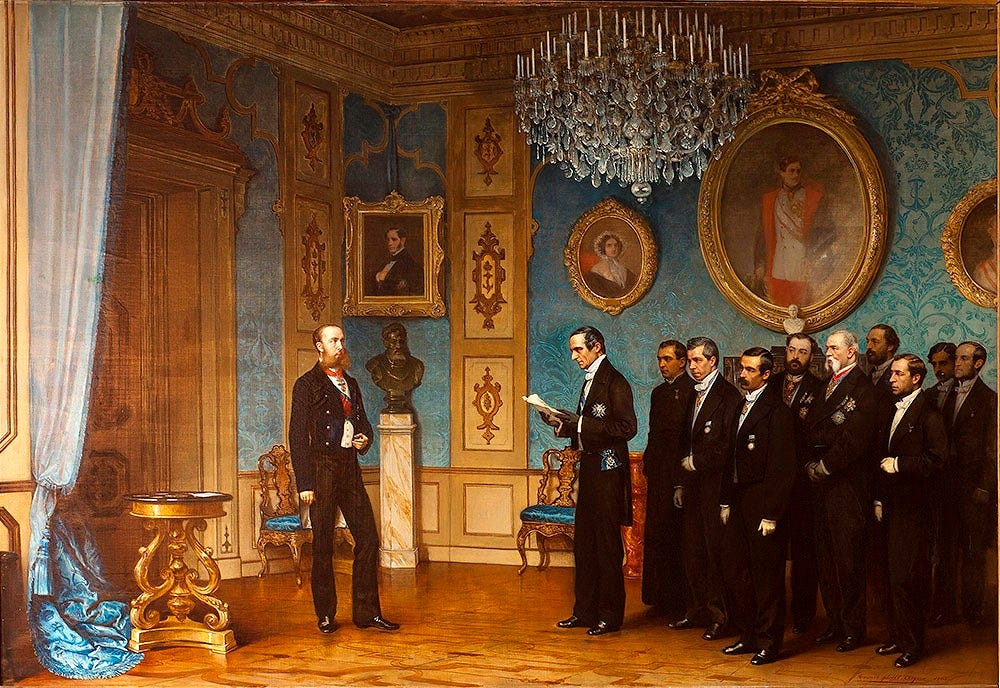
The letter Maximilian received was from the Mexican Assembly of Notables, inviting him to accept the crown of the newly proposed Mexican Empire. It was an idea that had been floated by him four years earlier — and which he had promptly refused.
But this time, things were different. Mexico was fresh off the back of another civil war, and the reforms enacted by the previous government had led to chaos. The Ley Lerdo not only resulted in the confiscation of Church property, but also impoverished indigenous communities — it abolished their legal systems, dissolved their communal lands, and forced them to sell to private buyers.
All this, of course, was done in the name of “equality” under the law — but Maximilan saw the injustice. However, he also saw the risks. The U.S. would never tolerate a European-backed monarchy in the Americas. The French, who had promised military support, could pull out whenever they wished. And despite the assurances of the Mexican delegation, Maximilian wasn’t convinced that he truly had the support of the people.
He asked for a vote to be held to ensure the people were on his side — but by the time the positive result returned, his decision had been complicated further. For Franz Joseph had made it clear to his brother that Austria would never get involved in Mexican affairs, and would be powerless to help Maximilian if things went wrong.
Left alone to ponder and pray in the quiet halls of Miramare Castle, Maximilian wrestled with his conscience until he finally arrived at his decision…
No Turning Back
The Empire is the only way to save Mexico. When one takes charge of the destiny of a nation, it is done at one’s own risk, and one never has the right to abandon it.
-Charlotte, Princess of Belgium, Empress of Mexico
What eventually tipped the scales wasn’t the desire for glory, but a sense of duty.
Receptive to the words of his wife, Maximilian saw in Mexico the chance to live out the principles he had long defended. He believed taking the crown would provide the opportunity to restore not just stability, but justice — including land reform, protection of Indigenous communities, access to education, and reconciliation between Church and state.
Maximilian wasn’t naïve about the obstacles. But he believed the mission was moral, and therefore worth the risk. In his first address to his new subjects, he made that belief clear:
Mexicans, you have desired my presence. Your noble nation, by a voluntary majority, has chosen me to watch henceforth over your destinies. I gladly respond to this call. Painful as it has been for me to bid farewell forever to my own, my native country, I have done so, being convinced that the Almighty has pointed out to me, through you, the mission of devoting all my strength and heart to a people who, tired of war and disastrous contests, sincerely wish for peace and prosperity; to a people who having gloriously obtained their independence, desire to reap the benefit of civilization and true progress.
-Emperor Maximilian I of Mexico
So it was that leaving behind the beauty of his beloved Miramare, Maximilian boarded the Austrian frigate Novara and set sail, bound for a country that might never accept him.
He knew the imperial project might fail. He knew he might die as a result. But he also knew he could no longer remain indifferent — not if he believed in the ideals he had written about for so long.
He had embraced his destiny. There was now no turning back…
Takeaways
1) Let Duty Guide You Out of Comfort
Maximilian had already found peace, and was not a man driven by ambition. But when a struggling nation called for help, he didn’t cling to comfort.
He instead chose to step forward, not because he was unsatisfied with what he had, but because he believed in his duty to others. He walked away from the comfortable life he had built — not in rejection of it, but in order to serve something greater.
2) Follow Principle, Even When the Outcome is Uncertain
Maximlian knew the path to Mexico was full of danger — political instability, international opposition, and the threat of war. He didn’t move forward recklessly but rather waited, asked questions, and sought moral clarity.
Once convinced the cause was just, he accepted the risk. His decision wasn’t impulsive, but deeply grounded — and that’s what made it noble. He acted not because he knew he would succeed, but because he believed the mission mattered more than the result.
3) Know that Meaning Begins Where Control Ends
Maximilian didn’t plan to be emperor. He lived in a world where his ideals were safe, orderly, and abstract. But when asked to lead a fractured nation, he stepped into uncertainty — not because he sought control, but because he was willing to let go of it.
His decision marked a shift from contemplation to commitment, from principle to action. This is precisely where a meaningful life begins — not when you have perfect clarity, but when you’re willing to risk everything for what you believe.
Want to dive deeper?
To find out how Maximilian’s story ends, join me and James this Thursday at 9am ET as we go live on X to discuss his life and career as Emperor of Mexico.
Visit my X account at 9am to access the livestream — once it ends, the stream will be added to our Members-Only Video Archive for you to catch the replay.
Also this Thursday, our premium subscribers will get a deep dive article exploring the full backstory of how Maximilian came to rule over Mexico — and how the imperial project ended in tragedy…
If you’re not already a premium subscriber, please consider joining below — and don’t forget that members of our Praetorian Guard get 5% off on retreats, and priority selection for attendance!
Ad finem fidelis,
-Evan

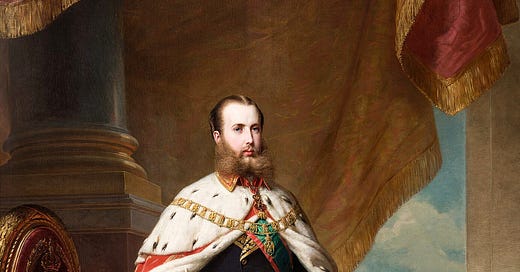



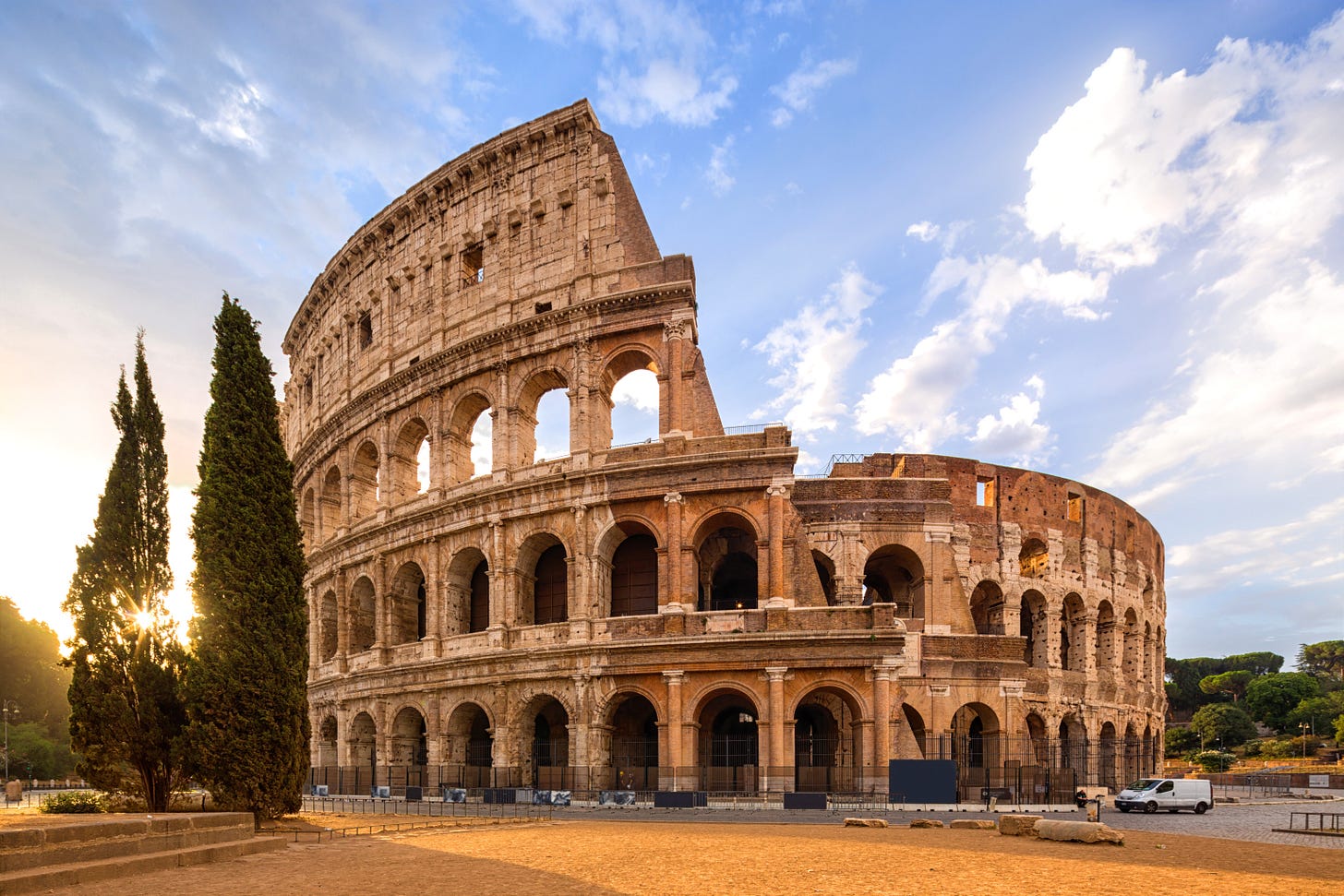
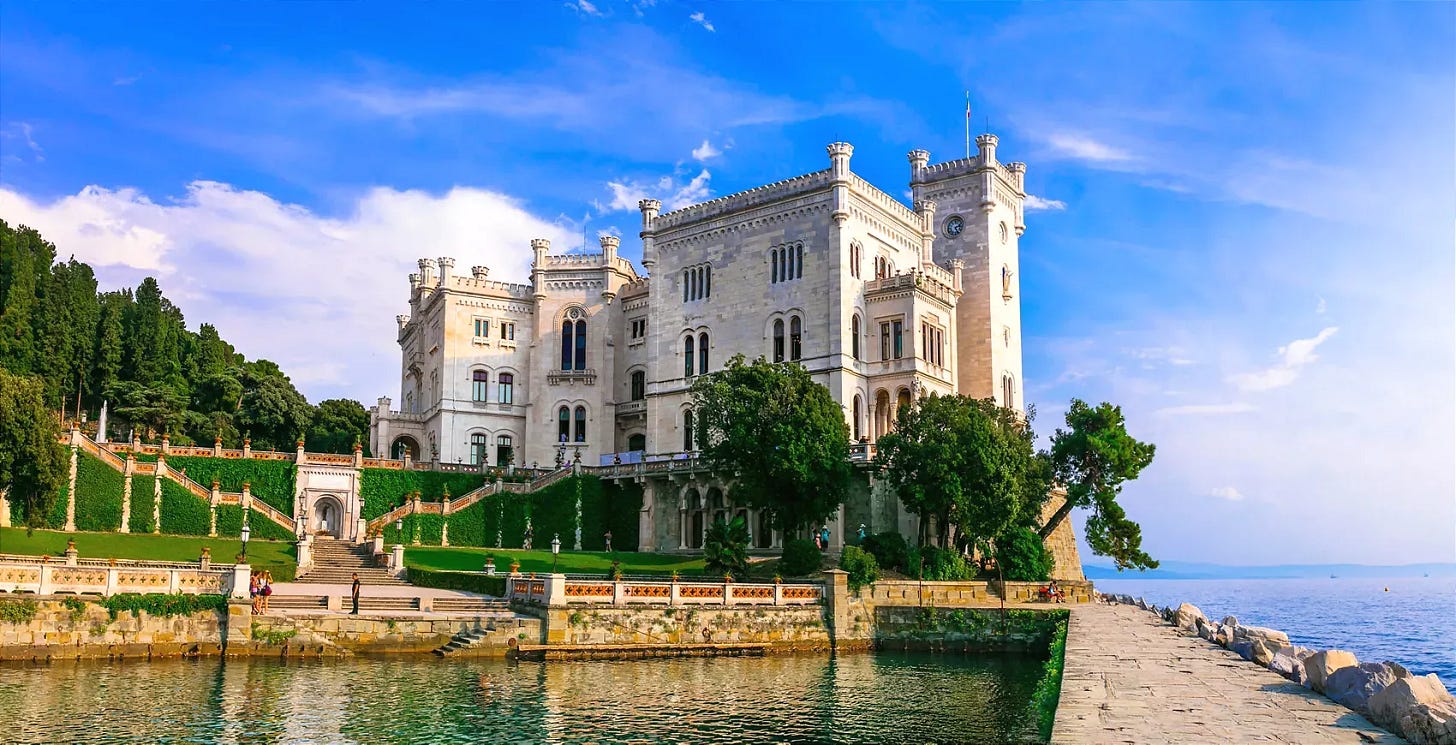
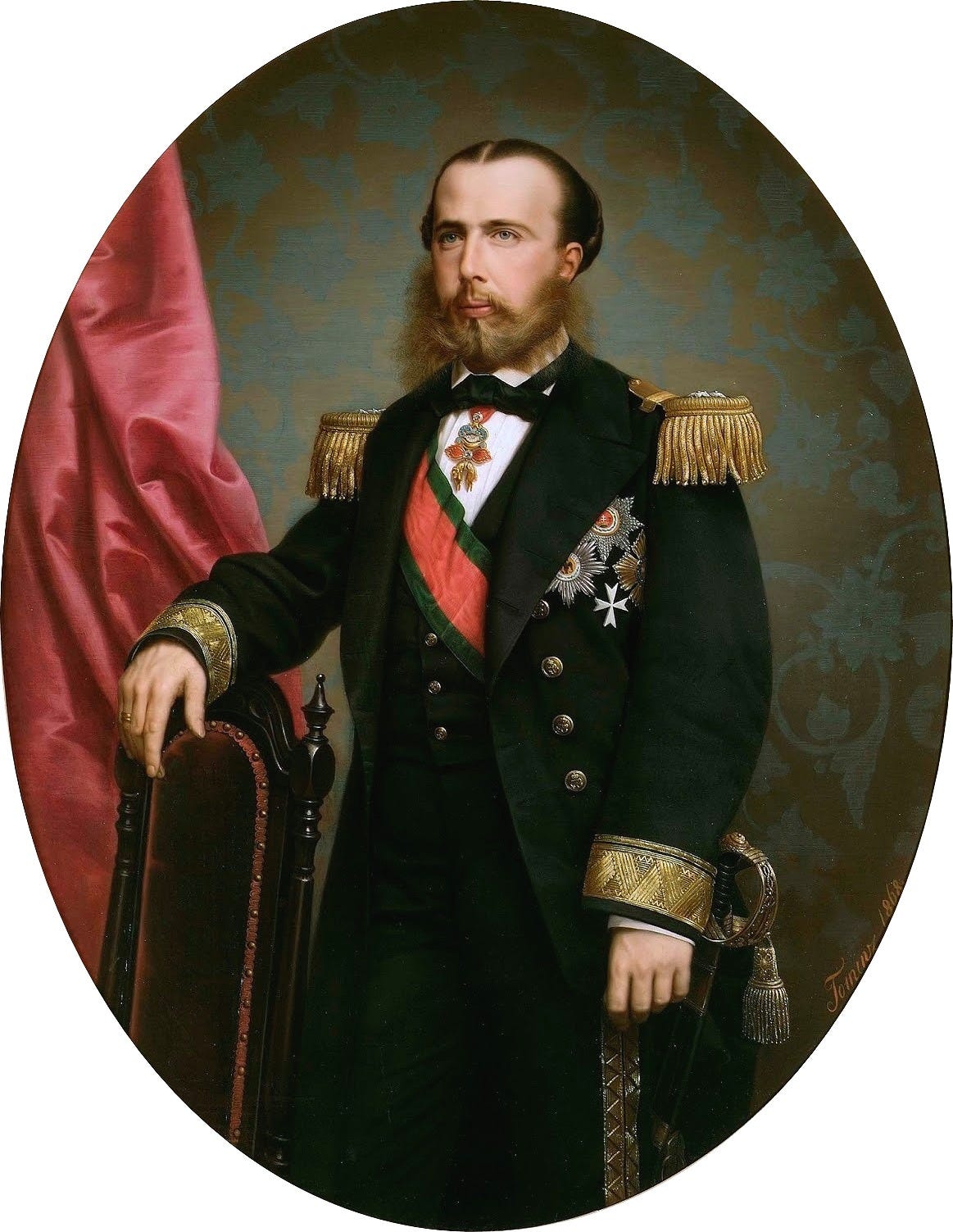
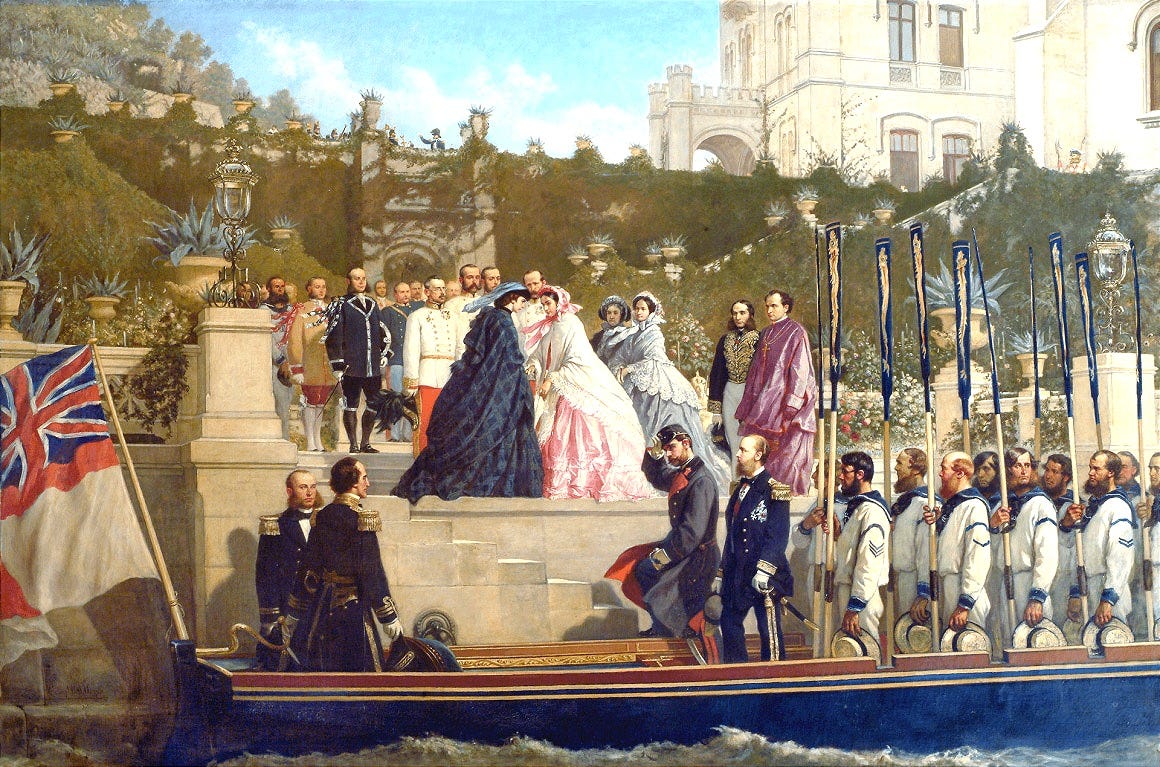
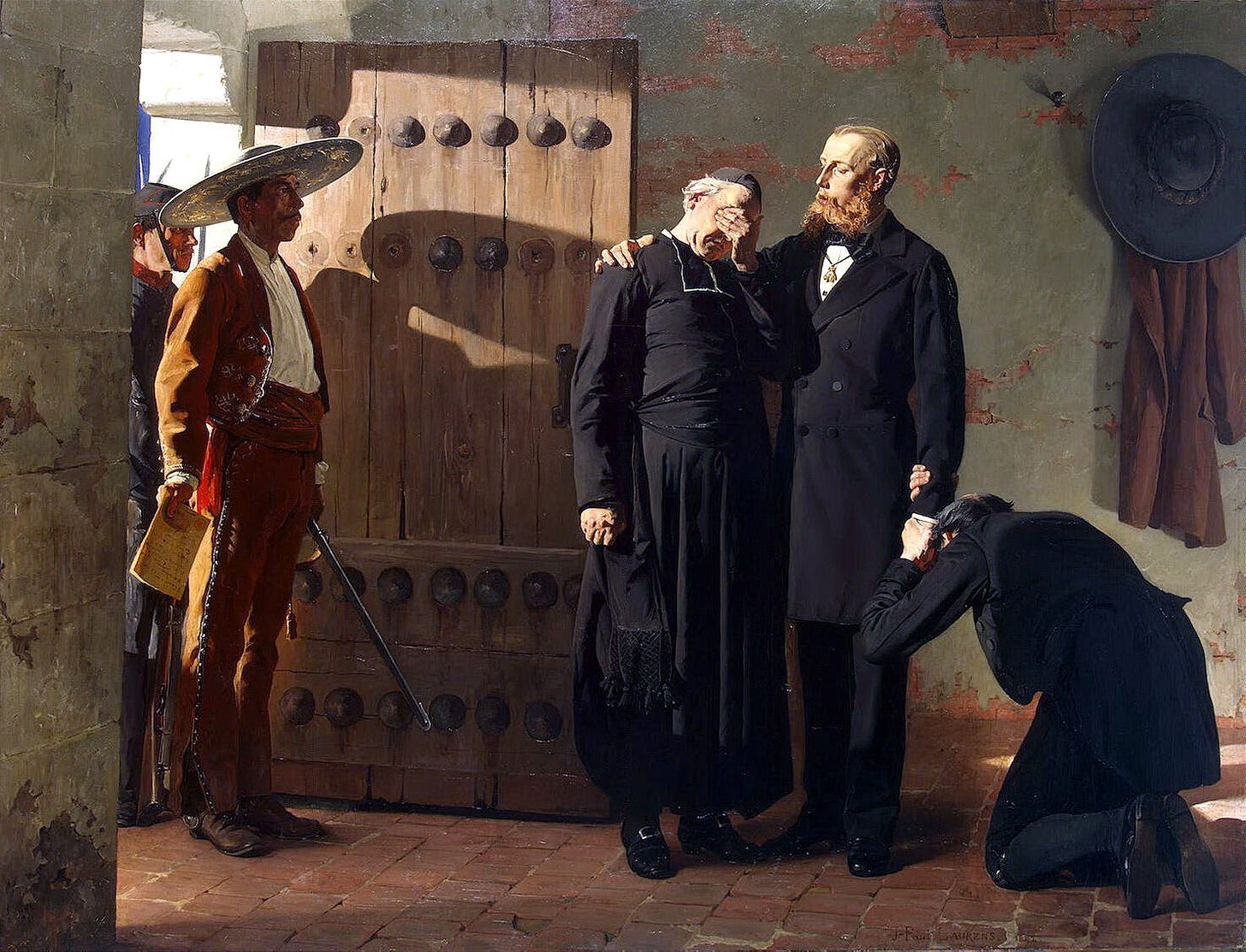
For a fascinating and incredibly humurous retelling of Maximilian's story, I'd highly recommend the episode done by The Rest Is History - The Last Emperor of Mexico (episode 163).
There's not much to say given that you have been quite exhaustive in your conclusions.
Maximilian had already all things some people could just dream, however his desire wasn't reckless as the simple protection of his standards but he went forward towards uncertainty to prove if their beliefs could give tangible results.
I think that it was right for his wealth that he decided to move. To make an analogy, he was already born arrived at the finish line of life, so the prospect of a new life where he could experience something at that moment not possible would be quite attractive.
Risking everything to be remembered as a useless king or as one of the greatest that country could ever have. Leaving that people in confusion and misery or gifting then with the opportunity of living not to simply survive but to have joy about what life can offer them.
At the end, I think the final push of inspiration he had was the fact that the situation was difficult to worsen, so he could just leave a mark or don't leave anything.